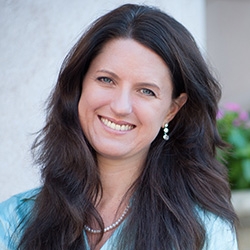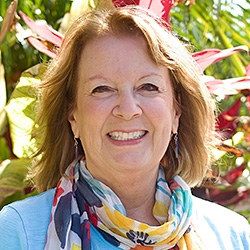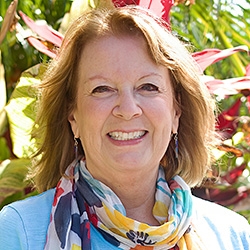

NVC Resources on Compassion
-
In the "obnoxious stage" we care for our needs in a way that doesn't respect others' needs. In the "emotional liberation" stage we fully care for others' needs as much as our own—while being free of fear, guilt, shame, or obligation. Often NVC training teaches us how to achieve the latter stage without the former. For greater compassion we can be more rigorous in how we talk about “responsibility", impacts and interdependence.
-
One NVC principle is "stimulus vs cause" - one may be the stimulus but never the cause of another's feelings. When we're upset this principle can help us express pain without blame. However, when others are upset it's easy to slip into blaming them using this principle. Instead, we can hear their pain with care and heartfelt mourning - without guilt nor defensiveness, and whether or not we agree. All this is important if we're sincerely applying compassion. Read on for more.
-
Yvette Erasmus shares practices to help us develop a regulated nervous system. We all get hijacked and triggered at some point. When that happens we can travel a blame and shame road or we can greet ourselves with graciousness and self compassion.
-
When your dedication to something is fueled by a profound intention to benefit all life, you may call it your spiritual practice. This means cultivating compassion, wisdom, and skills to notice what truly serves life. Its a discovery and experiment in what does and doesn't serve life, and what you can do now - its not about what you believe or not. Continuously inquire: "What most deeply serves life and how can I do that right now?"
-
If we're to have a better future, our biggest task will be to reexamine what the police are, their place in the system, and more. Police violence exists by systemic design. The myths of where the problems and symptoms lie with the police, capitalism, laws, government, citizens, class and racism --plus the relationship between all these-- is what keeps oppression ongoing on a mass scale. For change to happen, we'll need to find systemic leverage points, and use privilege to benefit those without it. Read on for more.
-
Our "felt-sense" can provide crucial information about our experience and our lives. It can also help us integrate and retain information. This can also bring greater access to internal resources, choice, open heartedness, collaboration and creative solutions. From there, profound insight and transformation can follow. Here's how we can harness that...
-
Even in the face of societal upheavals we can look for what's in our power to change. For example, we can participate in systemic change, and heal whatever we need to heal that which keeps us from living our values more readily. We can take the time to be present to those in pain, and to show up fully in our lives even when we feel stress. We can take strides to make a difference towards creating the world we want to live in.
-
Trainer Tip: Our inner critic judges ourselves and other people; and it is the most likely to get scared when we begin to make a change. It holds wisdom for us if we are willing to listen. When we acknowledge our inner critic and empathize with its need, we gain insights into ourselves and we clear the way for resolution.
-
Ask the Trainer: "Recently, I was sitting in my weekly practice group trying to connect to my reasons for wanting to give empathy to a particular person. She was telling us about some painful feeling she was having, but was not connecting to her needs."
-
Using real-life examples from class participants, Sylvia Haskvitz demonstrates the life-changing results of clarifying the needs underlying "shoulds." Some of the situations covered in this audio are:
- A grandmother shares how she was able to spend time with her grandchildren even when experiencing estrangement from her daughter
- A father examines how to repair a conversation with his daughter
- A woman explores her "should" thinking about her financial stability, her job and grief regarding her husband's death
- A woman connects to her deeper needs that arise with the statement "I should do my taxes"
- A woman perceives that she has conflicting needs for family harmony, relaxation and comfort when deciding whether to spend holiday time with stepchildren
If your life is fraught with "shoulds," this resource will support you in translating them into needs and, in some cases, to let them go entirely.

Quick Links
Subscription Preferences
Stay In Touch!
Looking for ways to keep up with NVC Academy news, get special offers, free resources, or words of inspiration? Here are five ways to stay engaged:










